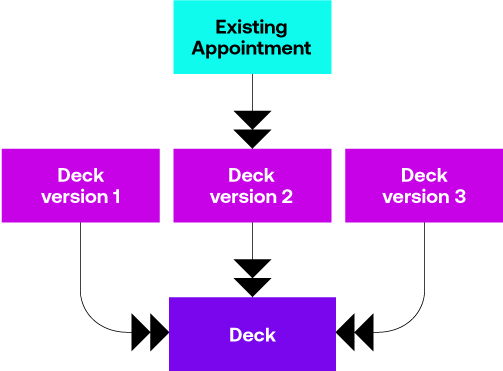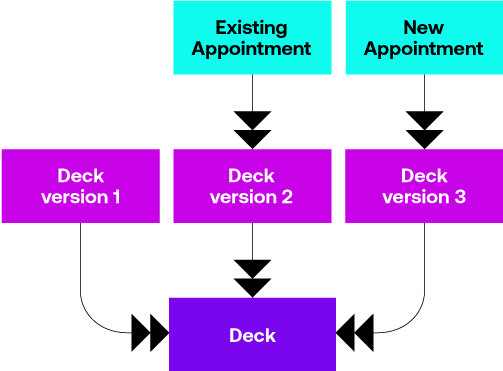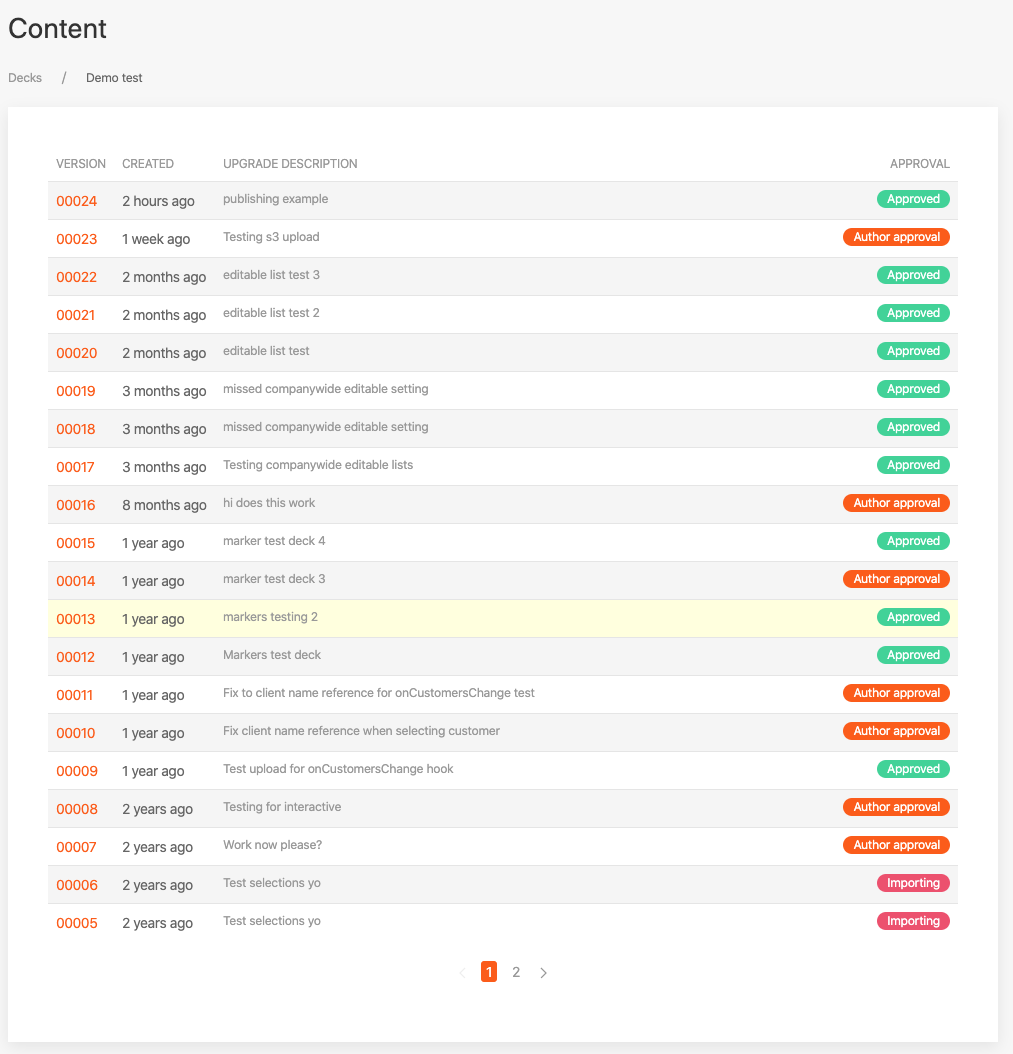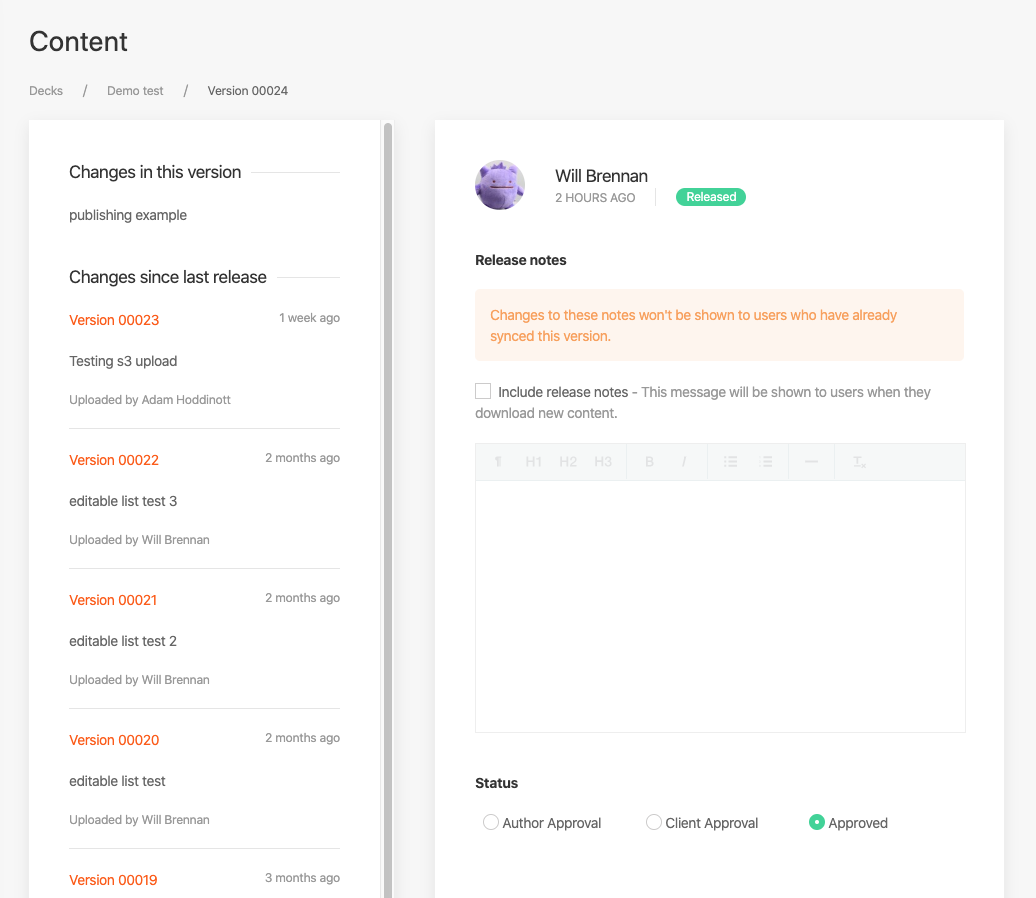Publishing a deck
Related links:
In order to publish a deck, it must first be uploaded to a server as a deck version, before making its way through the various approval stages to get in front of its intended audience.
What is a deck version?
LivePreso keeps a hold of all the Content Packs that are imported. Whenever you import a Content Pack, you create a new Deck Version:
Though it's hidden from LivePreso, they don't make appointments against Decks, they make them against Deck Versions:
If you create a new Deck Version, existing Appointments still point at their original Versions. This means importing new content won't disrupt anybody.

However, new Appointments will be made against the newest version:

Existing Appointments may be manually moved up to the newest Version client-side, but without user interaction, they'll stay as-is.
There are two caveats to the above process:
- When you import a Content Pack, it's unapproved. Until an administrator approves it, it won't be part of the above process for regular users. That is, new Appointments are made against the newest Version which is approved. Users with special permissions can ignore the unapproved status, which allows them to "beta-test" new content before it's approved for general use.
- For practical reasons, when a Version becomes approved, it still isn't immediately picked up for new Appointments. Devices must first sync the associated content changes before they begin using that Version for appointments.
Uploading a deck version
You have two options when it comes to uploading your deck to a server, use the CDK, or our CLI deploy tool. Read on to learn more about these options and how to employ them.
Using the CDK
See these instructions to publish using the CDK.
Using our CLI tool
CLI tool for uploading LivePreso decks. https://www.npmjs.com/package/@livepreso/deploy
The following commands will get you started:
npm install -g @livepreso/deploy
livepreso-deploy --help
How it works
- It will ask for your login/password
- It will store it in a config file
- Linux:
~/.config/livepreso/deploy/ - Mac:
~/Library/Preferences/@livepreso/deploy-nodejs/or~/Users/username/Library/Preferences/@livepreso/deploy-nodejs/
- Linux:
- It won't ask again unless the token runs out
A few caveats
- It doesn't check if any directories are missing (if it's an empty dist folder, that is what it's going to upload)
- It doesn't remove any map files from the folder
Releasing a deck version
Once uploaded, a deck version makes it way through a series of
approval stages before it gets in front of its intended end-users.
A deck version's approval status can be updated by users with the Content Creator
or Content Admin permissions using the CDK or LivePreso HQ.
Approval stages
See below for a breakdown of each of these status types, their intended user groups and viewing permissions.
Author Approval
- Unapproved decks that can be seen by users with
Content Creatorpermissions - Intended for review by content developers prior to UAT
Client Approval
- Unapproved decks that can be seen by users with
Content Adminpermissions - Used by internal project managers and small client teams for conducting UAT
Approved
- The most recent approved version, seen by all users
Updating approval status
If you are using the CDK, you will be able to update the deck version's approval status from the "publish" tab - as per these instructions. If not, or you are passing your deck version onto the client for final approval, the approval status can also be updated using the LivePreso HQ.

